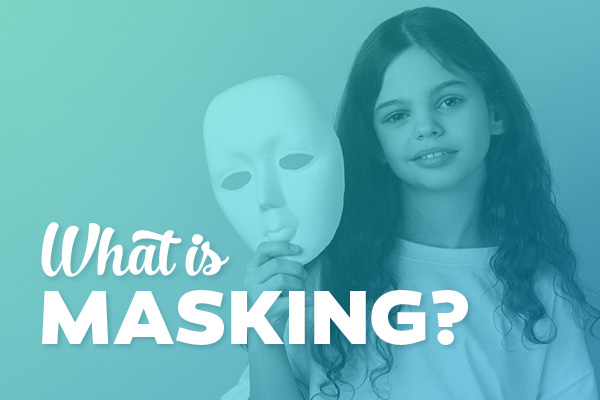Insights & Resources
What is Masking and How Does It Relate to Autism?
What it is, what it looks like, and why some people do it.

Share this
How does masking relate to autism and neurodivergence?
The word "masking" has been used frequently in recent years as more and more autistic self-advocates have been speaking out about their own masking experiences. Masking is the unconscious act of changing one's natural tendencies or characteristics to better fit in with others or to avoid potential judgment from others. This is a universal act not dependent on any diagnosis. However, in recent years, studies have shown that people, especially females with Autism Spectrum Disorder (ASD) tend to mask much more than someone without an autism diagnosis.
When an individual is masking, they are suppressing their innate social tendencies and replacing them with more "socially acceptable" ones. If masking is done for a long period of time, especially for several days in a row (i.e. while at your full-time job) the effects can be damaging to one's mental health. Suppression of one's self for the benefit of others can lead to what's known as "autistic burn out," loss or confusion of one's [characteristic] identity. Pretending or "putting on a mask" takes away one's ability to be their true self which in turn can result in emotional/social exhaustion.
Some of the tendencies or characteristics that may be suppressed when masking includes stimming, not making eye contact, utilizing a fidget, talking about a specific interest, and much more. Normalizing these types of behaviors is one way that we can encourage our neurodivergent (someone with any diagnosis) friends to be themselves. Another way we can support our friends who mask is to provide them with an empty area free from potential judgment or social expectations where they can take off their mask and be themselves without others around. Being a safe person that the individual can go to if they need to talk or need a break from the pressure of masking can also help.
Click here if you would like more information on this topic.
Share this



